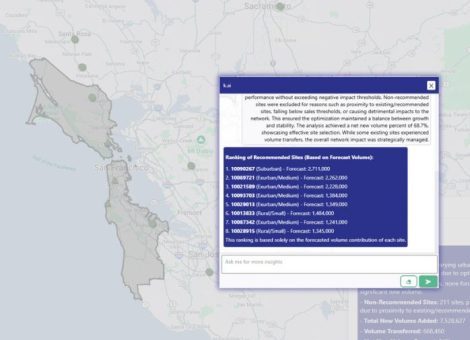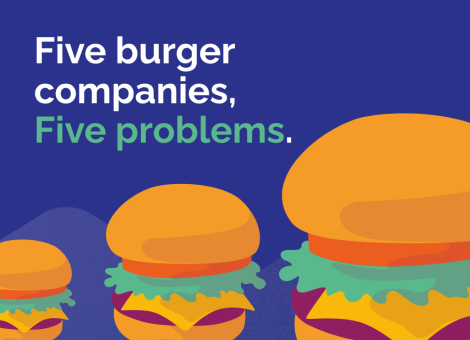The decline of fossil fuels and the rise of the service mindset
Without a doubt, the fossil fuel market is on the decline. According to the 2018 BP Energy Outlook, the world has seen an almost 70 percent increase in the electric power sector, along with a sharp increase in the use and availability of electric vehicles. By 2040, the energy mix is expected to be the most diversified the world has ever seen.
This rise in alternative energy sources — be it natural gas, wind, or solar — will continue to contribute to the decline of the fossil fuel market. Although fossil fuel usage will remain static in tonnes, it will become less of a percentage of overall energy use as that energy use continues to grow dramatically.
For fuel retailers, it’s important to develop a strategy that can stand up under these possibilities. That likely means becoming more flexible and resilient in order to succeed in the future — even if that future turns its back to the fossil fuel market. Of course, that flexibility and resilience involves offering alternative fuel types and adjusting your offerings, but it’s also much more than that.
A Shift in Mindset for Fuel Retailers
As travelers become more eco-conscious, it will certainly be important to provide them with the fuel types that appeal to them; strengthening and diversifying your offerings to meet the energy needs of the future will reduce your risk as the fossil fuel market share continues to drop. However, the main change that fuel retailers will need to undergo is a shift in mindset away from “selling fuel” to “serving travelers.”
Similarly, many oil companies have rebranded themselves as “energy companies” and invested billions in alternative fuel assets to appeal to the next generation of energy demand. Like Kodak, a highly successful company that died because it couldn’t make the shift from being a “film” company to being an “image” company as digital camera technology took hold, companies that can’t adapt to major changes in their industries will suffer.
It really doesn’t matter whether these changes are in consumer demands, changing economies, government regulations, or something else entirely — the way that fuel retailers react and adapt to these changes will determine whether they become a bane or a boon to their companies.
Selling Fuel vs. Serving Travelers
You’re probably wondering: What is the difference between “selling fuel” and “serving travelers”? Am I not serving travelers by selling them fuel?
Yes and no. Although a big part of serving travelers effectively involves providing them with the energy they need, a much bigger part requires an entirely new approach. One thing fuel retailers can do to better service the traveler of the future is to become a destination stop.
A destination stop is a site with offerings that make people want to stay longer. Rather than stopping to quickly fill up their gas tanks, customers will spend additional time and money at your site. Examples of offerings that have taken an ordinary fuel retail station to a destination stop include:
- Dog parks
- Great specialty food
- Uber and ride-share stations
- Pharmacy pick-ups
- Places to work
- Spa treatments
Also, consider incorporating local elements into your site. Building a site that reflects the community and meets its unique needs elevates your site beyond a mere fueling-up station to a place where people want to linger. Appealing to the human side of your customers can be an extremely powerful way to draw in customers even as the fossil fuel market continues to decline.
Take this Texas gas station, for example. Czech Stop & Little Czech Bakery has been open 24/7 for almost 30 years, serving authentic Czech food to the dense Czech-American population in the area. In 2013, the bakery appeared in national coverage of a major explosion at a fertilizer plant nearby, gaining notoriety across the United States. Now, the tiny gas station and bakery serves a huge clientele in the surrounding areas and even offers overnight shipping across the country.
There are lots of stories like this one, but the point is, a fuel retail site can become larger than life with the right amount of customer appeal. Data, logic, and science are so important to effective retail planning, but it’s important not to lose sight of the human elements as well.
Ultimately, the key to surviving in the face of a nebulous future is balancing business innovation and disruptive practices with superb business execution. As mentioned earlier, it’s important that you be flexible enough to adapt to changes and willing to take risks, but you can’t fumble when it comes to the way you operate and manage your network. In other words, you need to take calculated risks, not guesses. Feeding correct and comprehensive data into dynamic predictive models can help you make informed decisions about expanding your offerings and transforming your network.
The Destination Stop of the Future
Renewable and alternative energy sources are here, and they’re growing. The future will see a wide array of diverse energy supplies, and with it, the fuel retail marketplace will become increasingly complex.
Staying ahead means innovative ways to serve your customers, while also growing profit margins.
Expanding your fuel offerings to include alternative fuel types is the first step; as electric vehicles become more popular, this will be key to retaining customers. However, you also need to take a look beyond your forecourt as well. What can you offer in your c-store to bring in more customers? How can you appeal to the unique market surrounding your site? Expanding and diversifying your non-fuel offerings will help you stay ahead of the energy market, wherever it goes.
Contact Kalibrate today to learn more about our unique solutions and services.
Read more articles about:
UncategorizedSubscribe and get the latest updates
You may unsubscribe from our mailing list at any time. To understand how and why we process your data, please see our Privacy & Cookies Policy
Related posts
Location intelligence
AI in location intelligence: The force multiplier for smarter site selection
AI is rapidly advancing in the world of real estate - this is the first blog in a two-part series on incorporating AI...

Fuel pricing
June 2025. Kalibrate's Canadian Petroleum Price Snapshot
Kalibrate conducts a daily survey of retail gasoline, diesel, propane, and furnace fuel prices in 77 Canadian cities....

